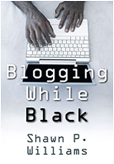Reminder: Banished airs tonight (2/19) on PBS
I just wanted to remind everyone that the Independent Lens documentary Banished airs tonight on PBS stations across the country. Please check your local listings for times. In Dallas, Banished will air on KERA Channel 13 @ 10 pm.
In 1864 in Washington County, Indiana, the white residents made a very simple proposal to the black community: leave or die. Most blacks fled, two who did not were murdered.
A week and a half ago, we hosted a screening of Banished at Friendship-West Baptist Church. Every member of the audience was moved by the sights and sounds portrayed by Marco Williams moving documentary. I urge everyone to Tivo, DVR, or just sit down and watch Banished tonight. And make sure your children watch it too. Below is my initial post on the film.
I thank Ski Chills for passing along the information on a PBS event that all of us need to mark down on our calendars. It’s the story of Black Americans who were forced from their homes and communities between the 1860’s and the 1920’s.
 Banished:American Ethnic Clensing
Banished:American Ethnic Clensing is a documentary by filmmaker Marco Williams that revisits three locations in the American south that ridded their entire communities of black residents. Banished is scheduled for a national broadcast on Independent Lens February 19, 2008.
is a documentary by filmmaker Marco Williams that revisits three locations in the American south that ridded their entire communities of black residents. Banished is scheduled for a national broadcast on Independent Lens February 19, 2008.
“I sincerely hope that the film will galvanize Americans to think about the concepts of reparations and reconciliation,” Williams said of his work. “It is about our sense of justice and our sense of fairness. It is about the question of how to redress the past. It is about how to repair what is broken and ultimately how to reconcile our differences.”
Here’s more information about Banished from the film’s website
A hundred years ago, in communities across the U.S., white residents forced thousands of black families to flee their homes. Even a century later, these towns remain almost entirely white. BANISHED tells the story of three of these communities and their black descendants, who return to learn their shocking histories.
In Forsyth County, Georgia, where a thousand black residents were expelled, the film explores the question of land fraudulently taken, and follows some descendants in their quest to uncover the real story of their family’s land. In Pierce City, Missouri, a man has designed his own creative form of reparation—he wishes to disinter the remains of his great-grandfather, who was buried there before the banishment. And in Harrison, Arkansas, home to the headquarters of the Ku Klux Klan, a white community struggles with their town’s legacy of hate.
By investigating this little-known chapter in American history, BANISHED also takes a contemporary look at the legacy of racial cleansing. Through conversations with current residents and the descendants of those who were driven out, the film contemplates questions of privilege, responsibility, denial, healing, reparations and identity.
ITVS Community, NBPC and the Center for Investigative Reporting
and the Center for Investigative Reporting are supporting the broadcast of Banished with Community Cinema screenings throughout the country. From Tacoma, Washington to Ithaca, New York, communities will host advanced screenings of the film as well as discussion. Click here
are supporting the broadcast of Banished with Community Cinema screenings throughout the country. From Tacoma, Washington to Ithaca, New York, communities will host advanced screenings of the film as well as discussion. Click here to see how your city can get involved.
to see how your city can get involved.
Make sure to take a moment to view the 1 min. 43 sec. video clip that previews the film. The opening lines of the preview give chilling accounts of U.S. civic exterminations:
In 1864 in Washington County, Indiana, the white residents made a very simple proposal to the black community: leave or die. Most blacks fled, two who did not were murdered.
This information is not surprising, but what Mr. Williams presents in this documentary is new to me. I am familiar with the practice of lynching in America. I am familiar with the events of Black Wall Street in Tulsa, Oklahoma. But the expulsion of black families -for me- is a whole new chapter in our shameful history as a nation.
As we watch the tribal violence in Kenya as well as Iraq, many Americans forget about our own sick and bloody past. Were America to be honest about its own long road to so-called “democracy” maybe there would be more patience with the plight of the Iraqi “government.”
All of the images and quotes in this post come directly from the Banished website . I’d ask for each reader to share this information with someone else so that on February 19th (during Black History Month no less) we can all partake in this historic presentation.
. I’d ask for each reader to share this information with someone else so that on February 19th (during Black History Month no less) we can all partake in this historic presentation.








